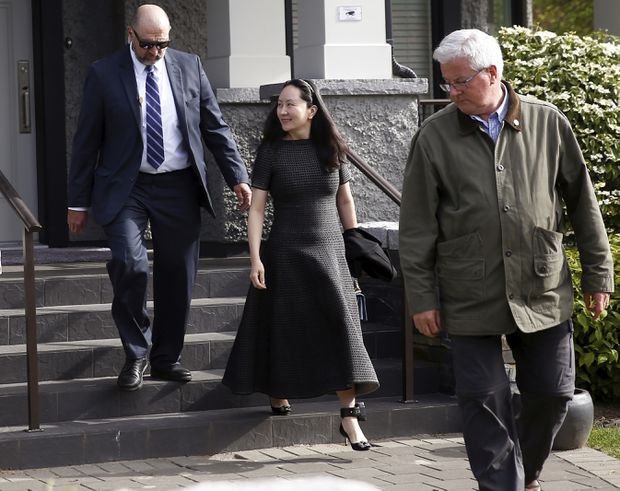Canada Defends Disclosure Of Huawei Emails With US

Canadian government tells court that it has released as much information over the arrest of Huawei CFO Meng Wanzhou as it legally can
Lawyers for the Canadian government have told a court hearing that the country has disclosed as much information as it legally is allowed, concerning the arrest of Huawei’s Chief Financial Officer Meng Wanzhou.
Wanzhou was arrested in early December 2018 by Canadian authorities on behalf of the United States, for alleged sanction busting with Iran.
Wanzhou disputed her arrest right from the start, and in March 2019 she sued the Canadian government, its border agency and federal police, and alleged that she was detained, searched and interrogated for three hours in violation of her constitutional rights.
![]()
Email disclosure
Now in a court room hearing, government’s lawyers on Monday defended the disclosure of emails, as Wanzhou seeks more confidential documents relating to her detention.
Wanzhou continues to protest her innocence and is fighting extradition to the United States while under house arrest in Vancouver.
However in May she lost a legal battle in British Columbia’s Supreme Court in Vancouver, after it ruled that Wanzhou’s extradition to the United States can proceed.
But Wanzhou has multiple chances to appeal, meaning that legal extradition case may drag on for years.
But regarding the circumstances surrounding her arrest, on the first day of hearings expected to last up to three days, Wanzhou’s lawyer said a “flurry of emails” between Canadian and American officials around the time of Wanzhou’s arrest should not all be covered by privilege, Reuters reported.
Essentially, Wanzhou’s legal team are trying to force the release of more documents to support their assertion that Canadian and American authorities committed abuses of process while questioning Meng before her arrest. One of their allegations is that there was improper sharing of identifying details about her electronic devices.
Crown lawyer John Gibb-Carsley was quoted by Reuters as saying his team is committed to making the trial “as open as possible without divulging the privileges which need to be protected.”
Litigation privilege
However, Meng’s lawyers argued that abuse of process is an exception to litigation privilege.
“We see a flurry of emails around the subject matter,” Scott Fenton, a lawyer for Meng, reportedly said. “We would be easily guilty of being wrong that all these emails are about that subject matter because we can’t see them, so it’s a matter for the closed hearing to determine what these are about.”
The Royal Canadian Mounted Police meanwhile have denied any abuses relating to their conduct during Meng’s arrest.
A decision regarding litigation privilege is expected to be issued by 2 October, with hearings expected to take until April 2021.